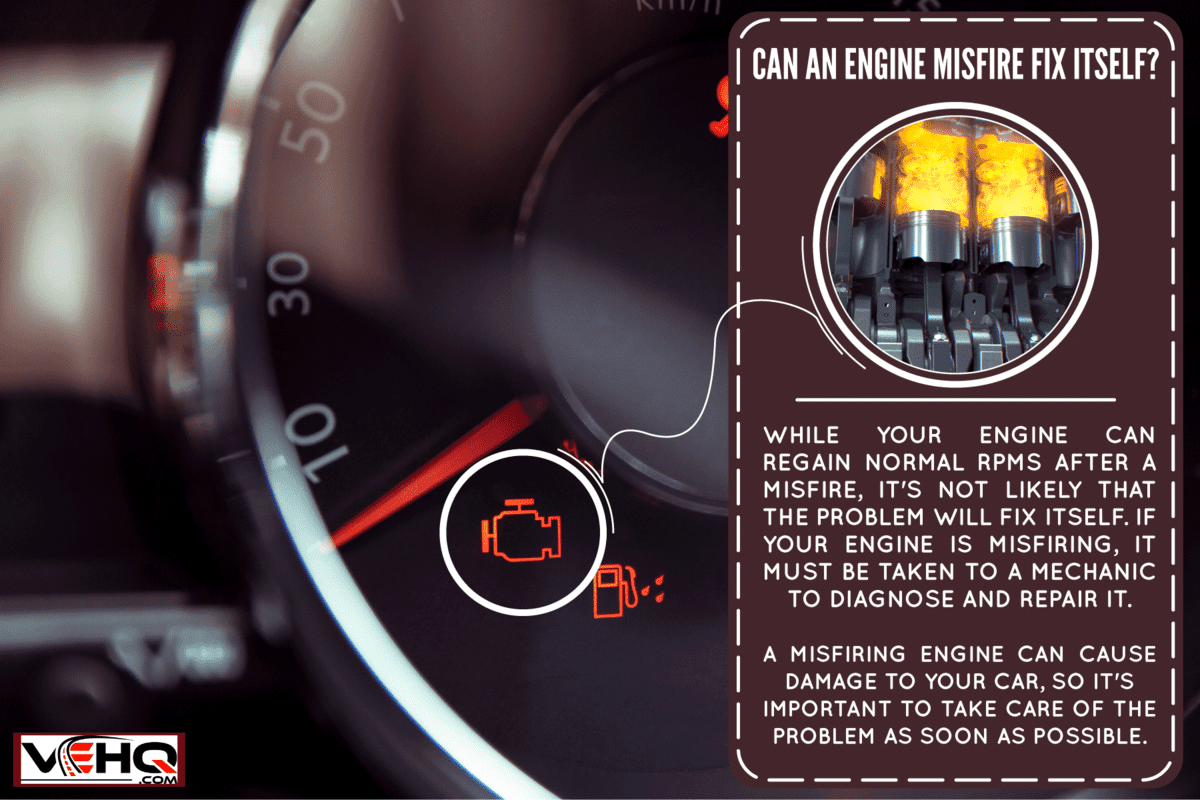When your engine misfires, it can be a problematic experience. A misfire can happen for several reasons, but can an engine misfire fix itself? Let's take a look to see if this is possible.
While your engine can regain normal RPMs after a misfire, it's not likely that the problem will fix itself. If your engine is misfiring, it must be taken to a mechanic to diagnose and repair it.
A misfiring engine can cause damage to your car, so it's important to take care of the problem as soon as possible.
An engine misfire isn't something that you should take lightly. In this article, we will discuss why and what could be causing your engine to misfire. We'll also touch on other frequently asked questions on engine misfires, so read on!
Will An Engine Misfire Fix Itself On Its Own?
A vehicle engine operates using three main systems: air, fuel, and spark. For an engine to run correctly, these three systems must work in harmony with one another.
When one of these systems is not functioning correctly, it can cause the engine to misfire.
Misfiring occurs when the air-fuel mixture in the cylinders is ignited prematurely or incompletely. This can happen for many reasons, but the most common cause is a problem with the spark plugs.
Other causes of misfiring include issues with the fuel injectors, ignition coils, or cylinders.
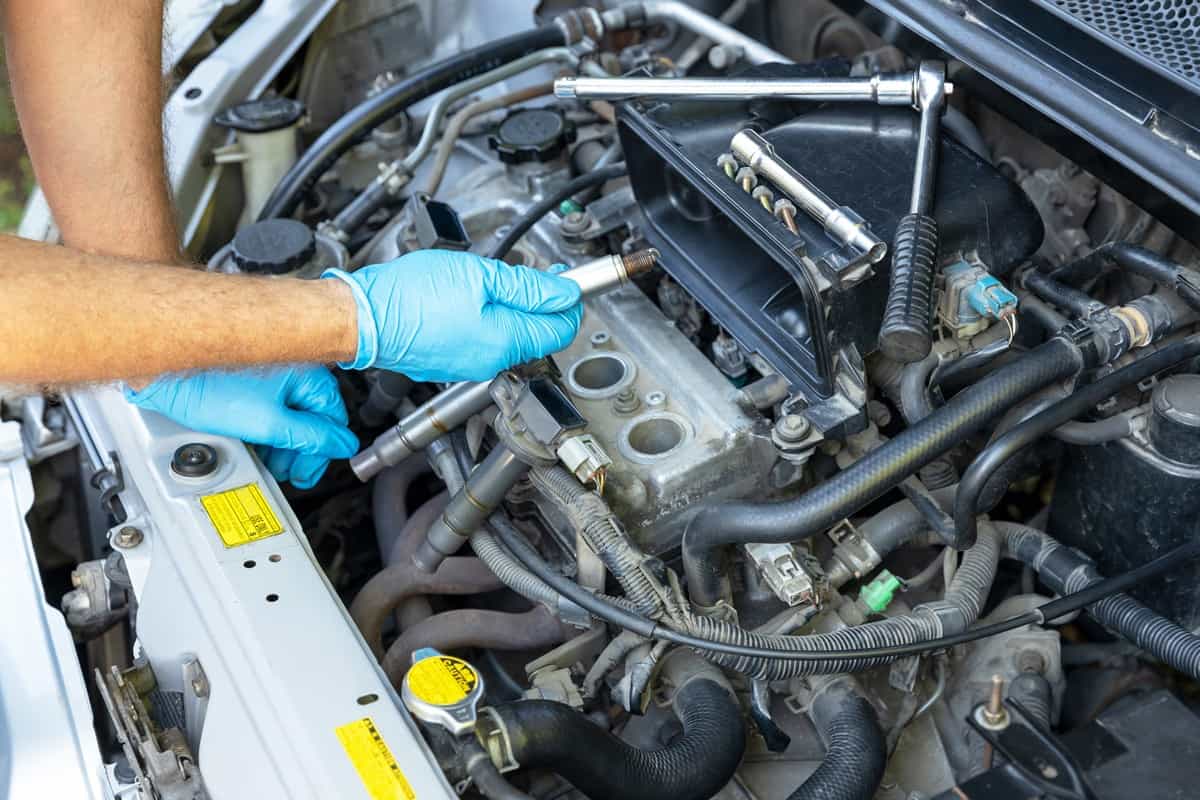
If your engine is misfiring, it's important to have it looked at. While your engine may go back to normal temporarily, the problem will likely persist and can cause damage to your car.
Typically, the misfire will throw a check engine light. In this situation, you can take it to a nearby auto parts store, and they will be able to read the code and tell you what is wrong.
This will give you some insight into what needs to be fixed, and then you can decide whether it's something you can handle on your own or if you need to take it to a mechanic.
A misfiring engine can cause long-term damage, so it's important not to ignore the problem. Fix the problem as soon as possible.
What Are The Warning Signs Of A Engine Misfire?
There are some tell-tale signs that your engine is misfiring. If you notice any of these, it's essential to take your car to a mechanic to have it diagnosed and repaired.
Let's take a look at them below:
Popping Or Backfiring Sound
A common sign of a misfiring engine is a popping or backfiring sound. This happens when the air-fuel mixture ignites prematurely, causing the exhaust to escape from the intake manifold.
Rough Engine Idle
If your engine is idling rough, it's another sign that something is wrong. A misfiring engine will cause the car to shake or vibrate due to the uneven firing of the cylinders.
Decreased Fuel Efficiency
If you notice that your fuel efficiency has decreased, it could be due to a misfiring engine. When an engine is misfiring, it's not operating at peak efficiency, leading to reduced fuel economy.
Check Engine Light
As mentioned earlier, a misfiring engine will often throw a check engine light. If you see this light, it's essential to take your car to a mechanic so they can diagnose the problem.
Sluggish Acceleration
If your vehicle has a delayed or sluggish acceleration, it's another sign that the engine is misfiring. This happens because the engine cannot produce the power needed to accelerate quickly.
The misfire can also cause your vehicle to stall. For example, if you are at a stop light and the engine stalls, it's likely due to a misfire.
This can be dangerous, as someone could rear-end you if they are not paying attention.
How Much Are New Spark Plugs?
As we mentioned earlier, a problem with the spark plugs is one of the most common causes of a misfiring engine. If your spark plugs are worn out or damaged, they can cause the engine to misfire.
Spark plugs are relatively inexpensive and easy to replace on most vehicles. New spark plugs typically cost between $20 and $100.
You can save significant money if you choose to do the spark plug replacement yourself. However, if you are not comfortable working on your car, it's best to leave it to a mechanic.
On average, you can expect a certified mechanic to charge $100-$200 to replace the spark plugs.
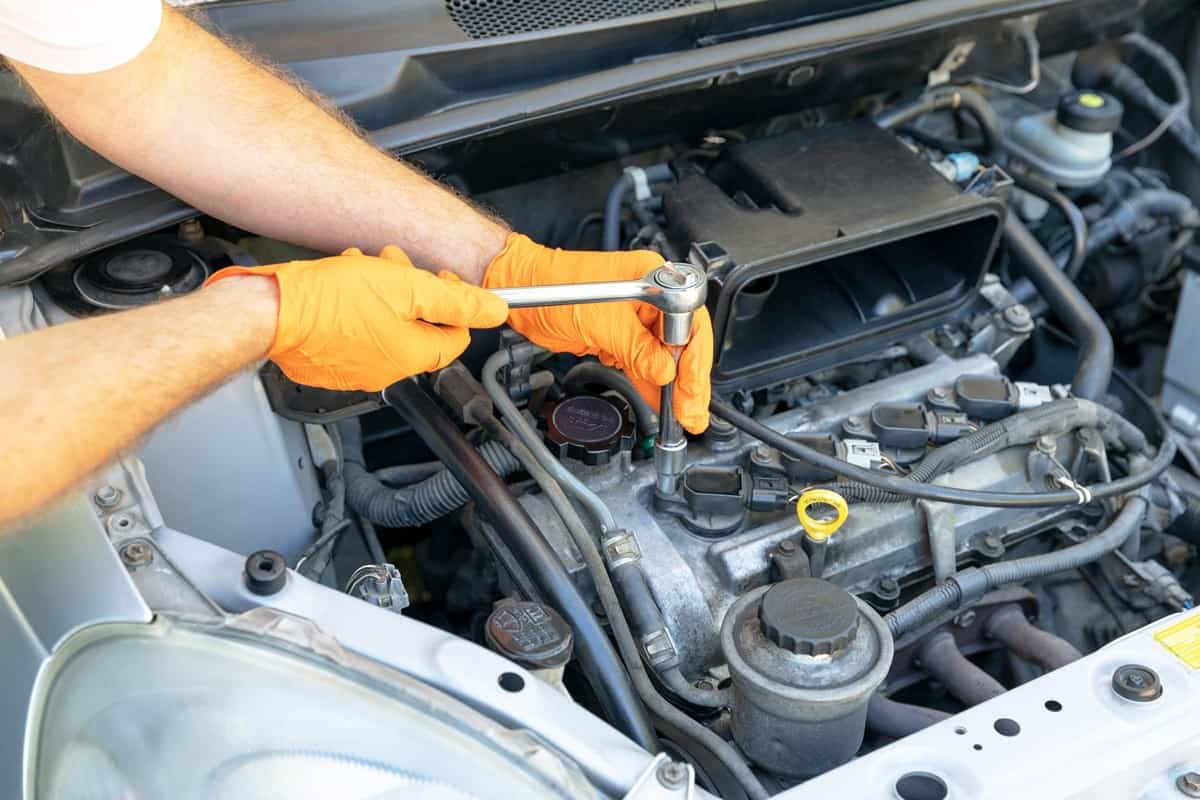
How Often Should You Replace Spark Plugs?
Depending on the type of spark plugs and your driving habits, they will need to be replaced every 30,000 to 100,000 miles.
If you drive in stop-and-go traffic or short distances often, your spark plugs will need to be replaced more frequently. This is because the spark plugs will not have a chance to cool down fully and become fouled more quickly.
If you have a newer car with iridium or platinum spark plugs, they can last up to 100,000 miles. However, if you have an older car with copper spark plugs, they will need to be replaced more frequently.
You can always speak to your mechanic to get their recommendation on when to replace your spark plugs. They may also recommend a different type of spark plug for your car.
What Does It Mean If My Car Has A Bad Air To Fuel Ratio?
For combustion to occur, your car needs the correct air-to-fuel ratio. If this ratio is off, it can cause the engine to misfire.
There are a few different ways that the air-to-fuel ratio can be thrown off, and this can cause the engine to run lean or rich.
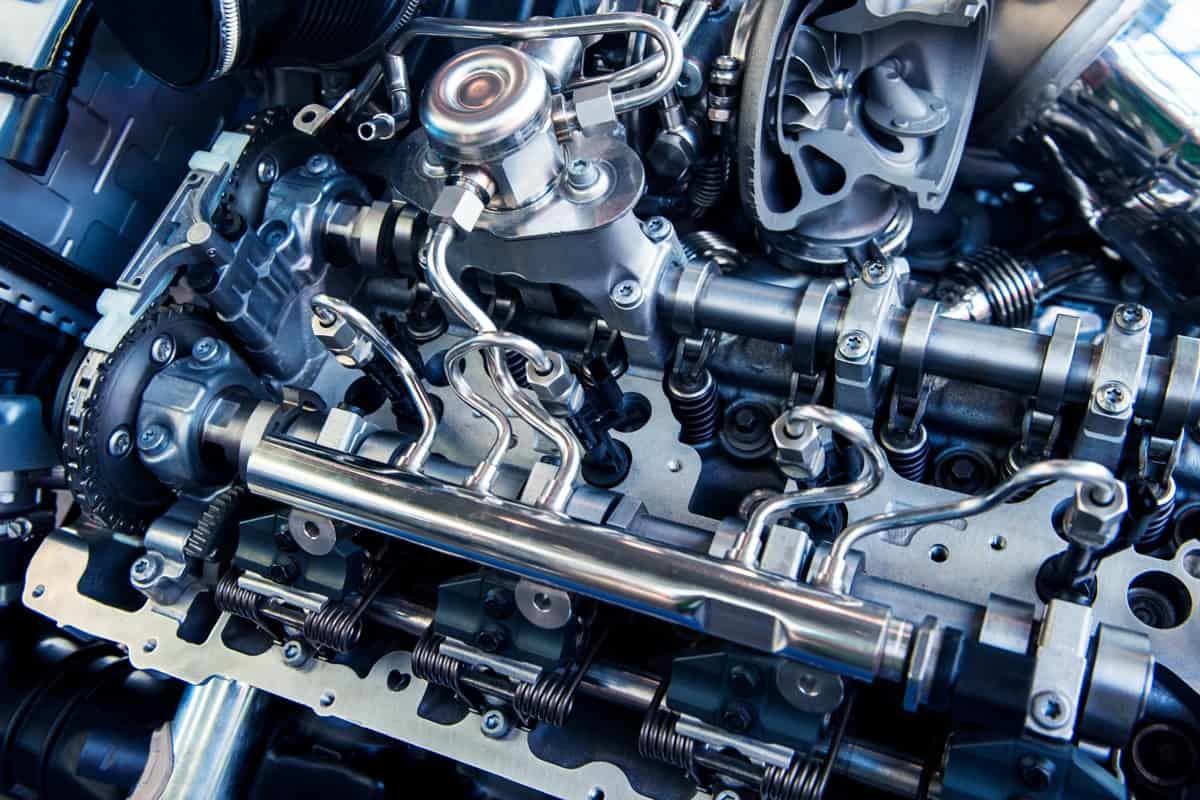
If the engine runs lean, there is insufficient fuel and too much air. This can be caused by several factors, such as a dirty air filter or a problem with the fuel injectors.
If the engine is running rich, there is too much fuel and not enough air. This can be caused by different factors, such as a dirty oxygen sensor or a problem with the fuel pressure regulator.
These issues can also be related to a clogged fuel filter, a bad fuel pump, or even old gas.
How Long Can You Drive With An Engine Misfire?
Depending on what is causing the engine to misfire, you may be able to drive for a short period without any major issues. You might also be able to make it thousands of miles before the engine finally gives out.
For example, one bad spark plug might not cause any significant damage to the engine. However, if the engine is misfiring on all cylinders, it can cause considerable damage, and you will need to have it fixed as soon as possible.
If you are driving and your check engine light comes on, it's best to pull over and call a tow truck.
Even though it could be as simple as a bad air flow sensor, it could also be much more severe, such as a cracked engine block.
Remember that the longer you drive on a misfiring engine, the higher the risk of damaging the engine beyond repair.
This could mean paying a couple hundred dollars for a set of spark plugs or thousands of dollars for a new engine.
Will An Engine Misfire Always Throw A Code?
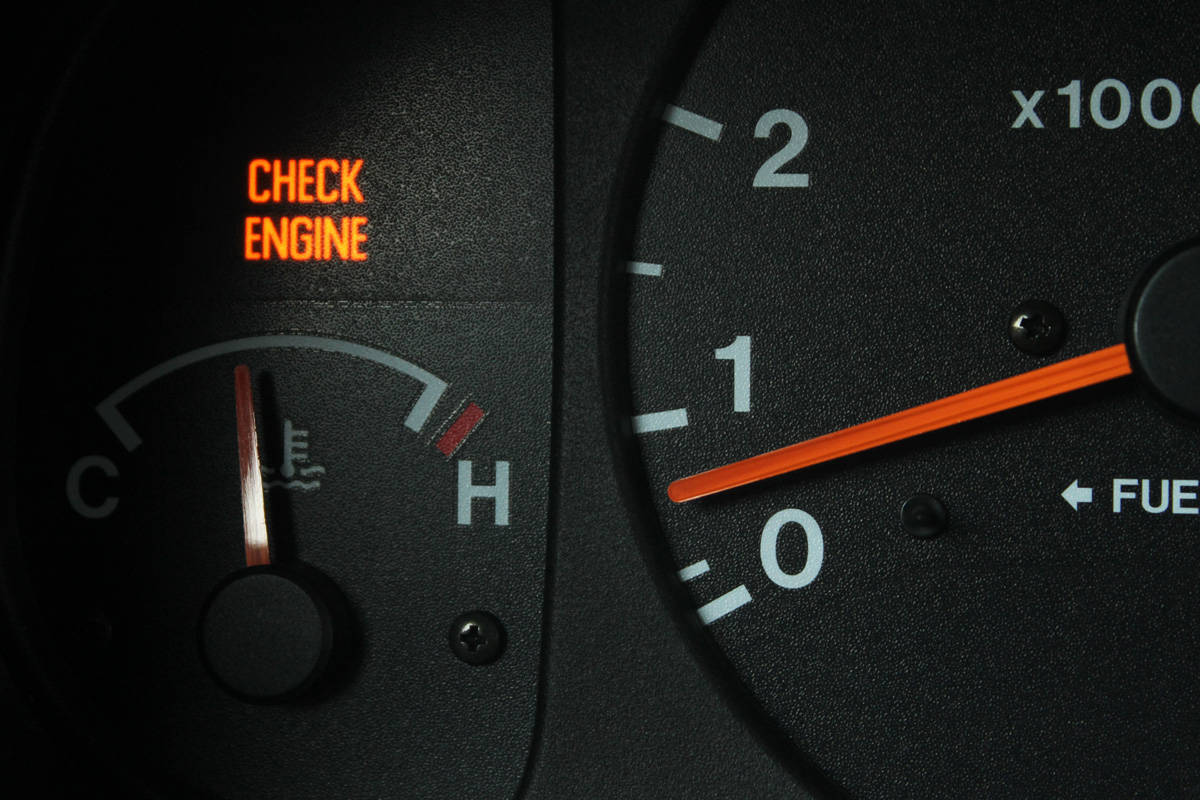
Whether or not an engine misfire will throw a code depends on the severity of the issue.
For example, if one spark plug is fouled and causing an engine misfire, it might not trigger a check engine light. In addition, a clogged fuel filter might not trigger a check engine light until the filter is almost completely clogged.
However, a bad cylinder or sensor usually triggers a check engine light immediately. Either way, since an engine misfire isn't subtle, you will know something is wrong.
That said, even though there isn't a check engine light or code, it doesn't mean the issue will disappear. The problem will likely get worse over time, so it's best to take your car to a mechanic and have them take a look.
Conclusion
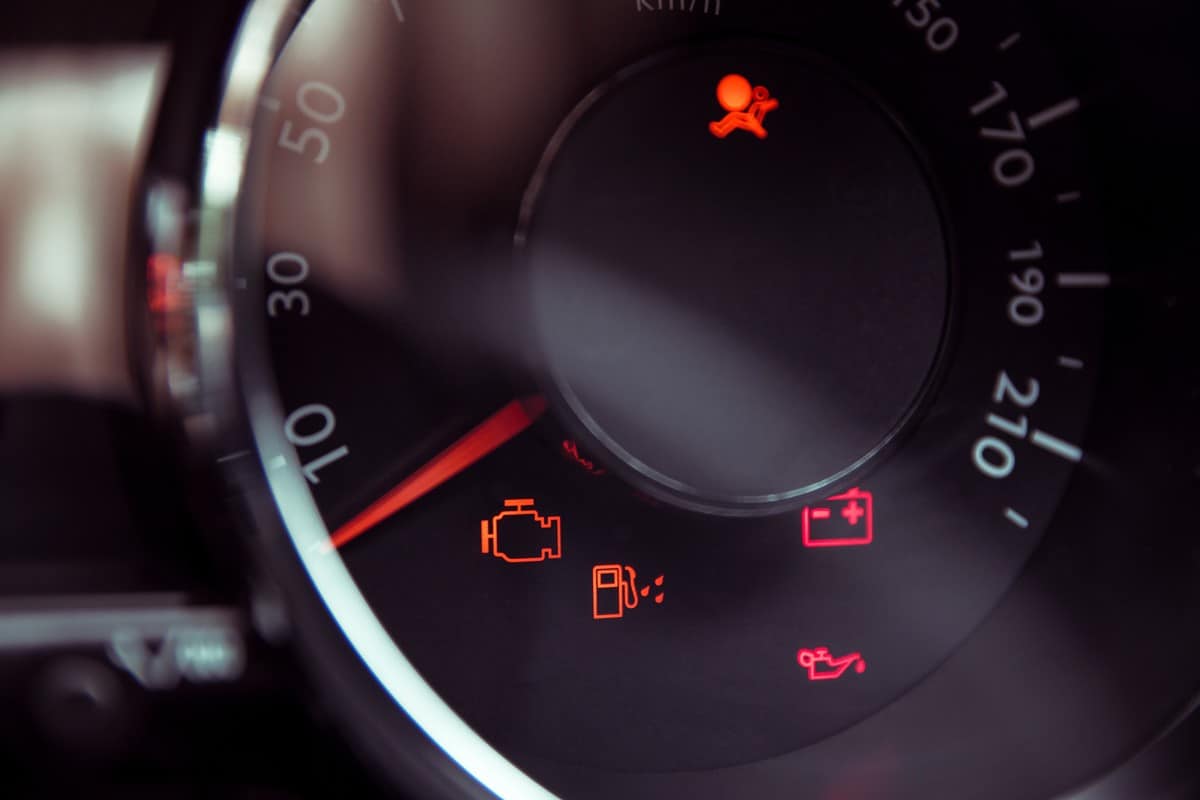
Overall, an engine misfire isn't something that will fix itself. It is a tell-tale sign that something is wrong with the engine, and if it's not fixed, it will likely lead to more expensive repairs down the road.
Don't let a minor problem turn into a big one; get your car checked out as soon as possible.
Made it to the end? Here are other articles you might find helpful:
Can An Exhaust Leak Cause Misfire?

